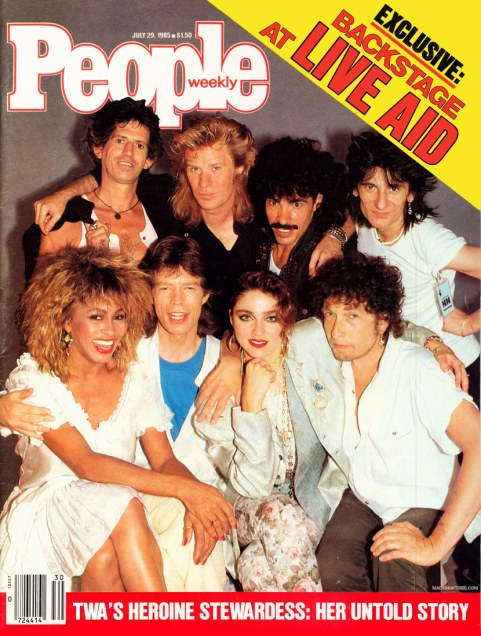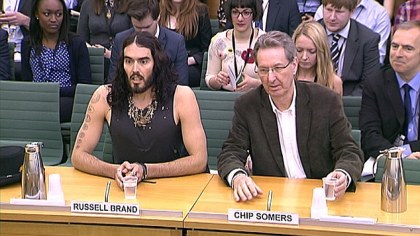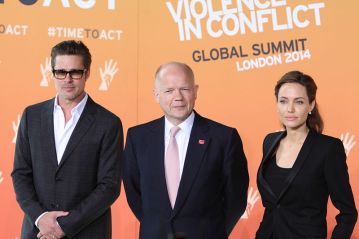‘In Every Society are to be found persons who, in the eyes of other members of the collectivity, are especially remarkable and who attract universal attention'(Alberoni, 108)…
Throughout the history of campaigning celebrities participation has been used to generate visibility and awareness, but is it true that there’s no such thing as bad publicity when it comes to using celebrities in campaigns for social change?
Firstly what is a celebrity? A celebrity can simply refer to someone of popular fame, however this understanding of celebrity can run the risk of over simplifying their position within society. Alberoni defined celebrities as a ‘powerless elite’, occupying a privileged social position derived from public attention rather then institutionally based power.
What sort of benefits can a celebrity bring as participant, ambassador or endorser of a campaign?…
- Help to mobilise activists
- Gain access to political decision makers
- Raise funds
- Use of the celebrity’s brand
- Access to media resources.
Using a celebrity allows you to reach out to a new audience that may not have any previous interest in social movements, people may watch a video or read an article simply because a celebrities name is mentioned. The attendance of a celebrity at event associated with a particular campaign can also make it newsworthy. In short it’s mass media attention, in which the level of media intensity depends on the type of celebrity used.
Examples of positive celebrity endorsement in social change campaigns; Russell Brand’s work with Avaaz and focus 12 for the decriminalisation of drugs took the discussion to the house of commons in a televised debate that received over a million views to date, on YouTube alone. This campaign has since achieved their 100,000 signatures required for the debate to go to parliament.
Angelia Jolie, a special envoy for UN refugee agency, has previously co -chaired UK Foreign Sectary William Hague at the Prevention of Sexual Violence in Conflict initiative, resulting in securing a range of agreements from 145 countries to end sexual violence.
You only have to view the list of celebrities associated with charities here to realise how common this practice is, and furthermore campaigns don’t seem to be limited to the use of just one celebrity.
Important things to consider. The type of constructed image the celebrity has is important. How are they well like, do they have a connection with the context of the campaign, who is their audience?
From all these positives it may appear as the Guardian writes, that celebrity endorsement is a ‘super- weapon’ of modern social change, with 75% of Britain’s 30 largest charities (excluding housing and care trusts) employing full-time celebrity liaison managers’, although there are of course negatives.
The negatives….
- Their notoriety can take focus away from a campaign’s key objectives.
- Contradictions, either behavioral or vocal, can damage the integrity of the campaigns they represent.
- They aren’t always taken seriously.
- A celebrity’s authenticity matters.
Celebrities are human after all and may follow their own interests above that of the campaign when needs be, or just simply make mistakes. Campaigners struggle to control celebrities in an relationship when often or not the celebrity feels like their doing the campaign a favor by lending their brand.
Examples of the negative effects to a campaign, following a celebrities involvement;
Naomi Campbell and Cindy Crawford wearing fur after shortly appearing in PETA ‘I’d rather go naked then wear fur’ campaign. Campbell’s defense for posing in fur was to criticise PETA by branding the group as ‘too aggressive’.Crawford responded though her publicist, saying that she had never really supported Peta’s stand against fur but was instead being “really nice” to the organisation by joining their campaign.
Scarlett Johansson recently stepped down from her role as Oxfam ambassador after being criticised by the media for her affiliation with the Israeli company SodaStream, who operate in an illegal colony in the occupied West Bank. A statement later released by the actress confirmed her support for SodaStream’s policies in contrast to Oxfam who responded, ‘Oxfam is opposed to all trade from Israeli settlements, which are illegal under international law’. This statement has since been removed from their website.
From these examples it appears that major risk campaigners take when choosing a celebrity to represent their movements, is in allowing a public figure to represent their campaign who may not share their core values.
Despite the negatives it is also important to understand that social movement activists and their opponents struggle to frame their claims and activities in a variety of venues, including the mass media. This is an issue that a movement faces even without using a celebrity. Most movements operate at a distinct disadvantage competing first for attention altogether, and second for their preferred images of self and claims.
Celebrities may direct our attention towards campaign, but do we really take them seriously? Meyer argues that it’s ‘extremely difficult for celebrities to lodge credible claims for structural reform’ (Meyer, 1993) as they sit in very advantaged positions and the visibility of this undermines their intent.
Finally.. celebrities may have the potential to greatly influence a campaign, but it’s important to note that ‘even when a celebrity participates in a movement, such participation is invisible unless the movement itself generates some threshold of political activity (meyer 1993). Furthermore celebrity involvement may certainly bring extra media and public attention, but can they help change behavior and leave a lasting legacy?





Celebrity endorsement can definitely be an efficient means to a big cause, but as important as the cause might be, celebrities should never be treated as if a cause is more important.The most distinguished example of this is of course the PR-trick against Emma Watson after her speech in the UN. Threatening to release nude photos of her – an act of repulsive sexism – in order to ‘draw intention to sexism” – WHAT? Hijacking a celebrity’s good intentions for a ‘good cause’ is never the way to go. Maybe Emma Watson was in on it, which would reveal Emma’s own poor judgment, but normalisation of sexism against celebs in order to highlight sexism is just.. backwards.
Celebrity endorsement 2.0: https://www.youtube.com/watch?v=fiLmu7q1TWM
LikeLike
I suppose it’s a bit of a balancing act for campaigners who utilise celebrity endorsement: on the one hand, a celebrity can take the campaign to people that might never have engaged with it otherwise, on the other, if there’s a disparity between values of the campaign and those of the celebrity we see the kinds of issues you’ve described.
I would also say that the nature of celebrity can cause issues. “Fandom” seem to be becoming more intense and with that so does the hatred that some people in the public eye inspire. Look at Russell Brand for example – every news story he is in generates hyperbolic love/hate comments. Fans of his may well become interested in the causes he’s championing, but those who profess their dislike of him might be completely turned off.
I imagine it’s helpful for campaigning groups to remember that there are such issues with getting high-profile endorsements, particularly as increasingly these can take the form of instant things like tweets as opposed to the more carefully planned and controlled information of the ad campaigns above.
LikeLike